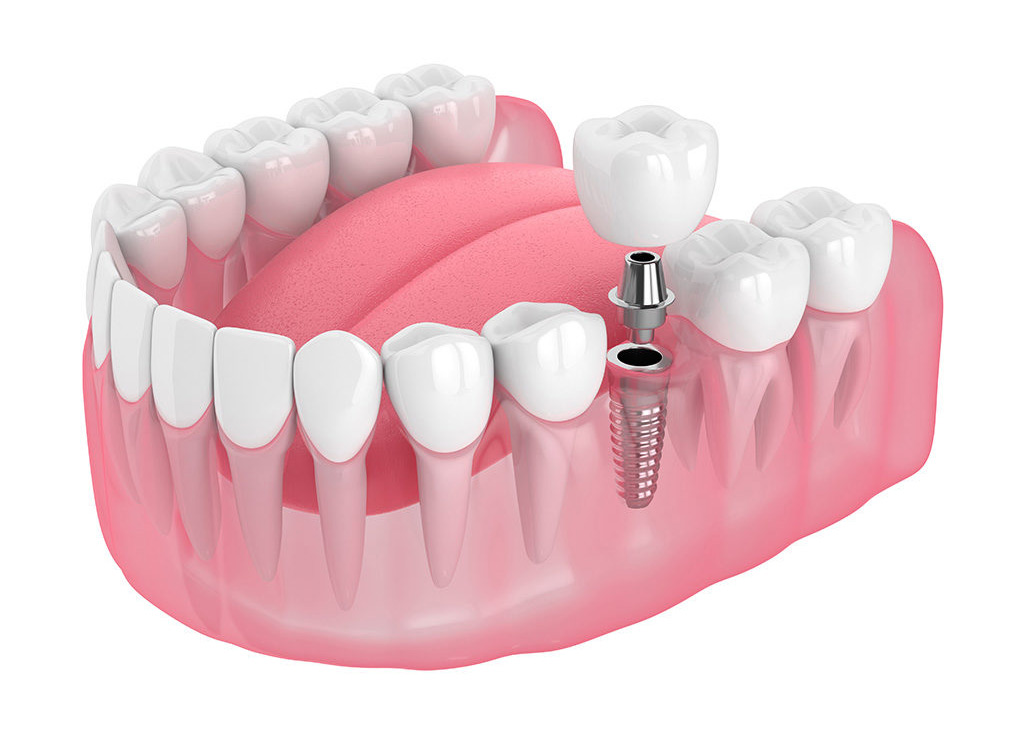Dental implant surgery is a procedure that involves replacing tooth roots with metal posts and replacing damaged or missing teeth with artificial teeth that closely resemble real ones. This surgery offers a viable alternative to dentures or bridgework that may not fit well. It is also beneficial for individuals who lack natural teeth roots, as it allows for the construction of denture or bridgework tooth replacements. The success of dental implants hinges on the bone healing tightly around the implant, providing solid support for new teeth.
However, this process can take several months, as it requires ample time for bone healing.
Reasons for Considering Dental Implants
There are several compelling reasons why dental implants may be the ideal solution for individuals with missing teeth. Dental implants serve as the roots of the missing teeth and are surgically placed in the jawbone. Unlike fixed bridgework or dentures, implants become fused with the jawbone, providing stability and minimizing the risk of slipping, noise, or bone damage.
Moreover, dental implants do not decay like natural teeth do, which makes them a durable and low-maintenance option for tooth replacement. Dental implants may be suitable for those who have one or more missing teeth, have a fully grown jawbone, possess sufficient bone for implant stability, and have healthy oral tissues.
Additionally, individuals who desire improved speech, are unwilling to wear dentures, and are committed to the process lasting several months may consider dental implants.
Risks Associated with Dental Implant Surgery
As with any surgical procedure, dental implant surgery carries some inherent risks.
However, these risks are rare, and complications are typically minor and easily treatable. Potential risks include infection at the implant site, injury or damage to surrounding structures such as teeth or blood vessels, nerve damage resulting in pain or numbness, and sinus problems when the implants protrude into the sinus cavities. It is important to note that these risks can be minimized by selecting a skilled and experienced dental surgeon.
Preparation and Procedures
Evaluation and Assessment for Candidacy
Before undergoing dental implant surgery, a thorough evaluation is necessary to determine whether an individual is a suitable candidate. Specialists involved in the assessment process may include oral and maxillofacial surgeons, periodontists, prosthodontists, and occasionally an ear, nose, and throat specialist. During this evaluation, dental X-rays, 3D images, and models of the teeth and jaw are taken.
Additionally, the patient’s medical history is reviewed to identify any conditions or medications that could affect the surgery. Factors such as the number of teeth to be replaced and the condition of the jawbone and remaining teeth are considered when developing a personalized treatment plan.
Bone Grafting and Its Significance
In cases where the jawbone is not thick enough or too soft to support dental implants, bone grafting may be required. The powerful chewing action exerted on the bone necessitates a solid foundation for the implant’s success. Bone grafting involves adding bone material to the jawbone to create a more substantial base for implant placement. This procedure can be performed using natural bone grafts from another part of the body or synthetic bone grafts that provide support structures for new bone growth. The transplanted bone usually takes several months to grow enough to support a dental implant fully.
Stages of Dental Implant Placement
The process of dental implant placement typically occurs in stages, allowing for healing time between procedures. The various stages include damaged tooth removal, jawbone preparation or grafting (if required), dental implant placement, bone growth and healing, abutment placement, and artificial tooth placement. The duration of the entire process can vary from several months to more than a year, depending on individual circumstances, specific procedures performed, and the materials used.
Impact of Bone Health on Implant Success
Effects of Osteoporosis on Bone Density
Osteoporosis is a condition characterized by decreased bone density and increased risk of fractures. As bone health plays a vital role in the successful integration of dental implants, it is essential to consider the impact of osteoporosis on bone density. Osteoporosis can affect the jawbone, potentially reducing its stability and compromising the long-term success of dental implants.
Considerations for Patients with Osteoporosis
Patients with osteoporosis need to inform their dental surgeon about their condition. The surgeon may recommend a bone density test and consult with the patient’s physician to assess the feasibility of dental implant surgery. Individuals with osteoporosis may still be suitable candidates for dental implants if their bone density is within an acceptable range.
Alternative Treatments for Patients with Bone Loss
In cases where bone loss from osteoporosis is significant and compromises the success of dental implants, alternative treatments may be considered. These alternatives could include implant-supported dentures, mini dental implants, or regenerative procedures such as dental bone grafts or sinus lifts. While dental implants may not be suitable for all individuals with osteoporosis, exploring alternative treatments with a dental professional can help find the best solution for each patient.
Post-Procedure Care and Long-Term Results
Recovery and Healing Process
Following dental implant surgery, some discomfort and side effects are common. Swelling of the gums and face, bruising, pain at the implant site, and minor bleeding may occur. Pain medication and antibiotics may be prescribed to manage these symptoms. Patients are advised to maintain proper oral hygiene and to follow the dentist’s instructions regarding cleaning the implant area.
Potential Complications and Their Management
Complications after dental implant surgery are rare but may include infection, damage to adjacent structures, nerve damage, and sinus problems. If any discomfort, swelling, or increased pain is experienced, it is important to contact the oral surgeon for further evaluation and appropriate management.
Long-Term Maintenance and Dental Care
To ensure the longevity of dental implants and the overall oral health, practicing excellent oral hygiene is crucial. Thoroughly cleaning the implant area, along with surrounding teeth and gums, is essential. Specialized brushes and interdental brushes can be used to clean hard-to-reach areas. Regular dental checkups are recommended to monitor the health and functioning of the implants. Avoiding damaging habits such as chewing hard objects, using tooth-staining tobacco and caffeine products, and addressing teeth grinding can help extend the lifespan of dental implants.
FAQs
How Does Osteoporosis Impact the Success of Dental Implants?
Osteoporosis can impact the success of dental implants by reducing bone density and compromising the stability of the implants.
However, with proper evaluation and treatment, individuals with osteoporosis may still be suitable candidates for dental implant surgery.
Are Individuals with Osteoporosis Suitable Candidates for Dental Implant Surgery?
While dental implants may not be suitable for all individuals with osteoporosis, each case needs to be evaluated individually. Factors such as bone density, overall health, and treatment options must be considered before determining candidacy for dental implant surgery.
What Precautions Should Individuals with Osteoporosis Take Before Undergoing the Dental Implant Procedure?
Patients with osteoporosis should inform their dental surgeon about their condition and have a bone density test performed. Consultation with the patient’s physician can help determine the suitability of dental implant surgery. Following the recommendations of both medical professionals is crucial for ensuring the safety and success of the procedure.
Can Osteoporosis Lead to Complications During the Healing Process After Dental Implant Surgery?
While osteoporosis does not directly cause complications during the healing process, it can affect the quality and density of the jawbone, potentially compromising the integration of dental implants. However, with careful evaluation, treatment planning, and proper post-operative care, the risks can be minimized, and successful outcomes can still be achieved.
In conclusion, dental implant surgery is a highly effective and long-lasting solution for individuals with missing teeth. Understanding the process, risks, and considerations for patients will enable them to make informed decisions regarding dental implants. By following proper post-operative care and maintaining good oral hygiene, individuals can enjoy the benefits of dental implants for years to come.




